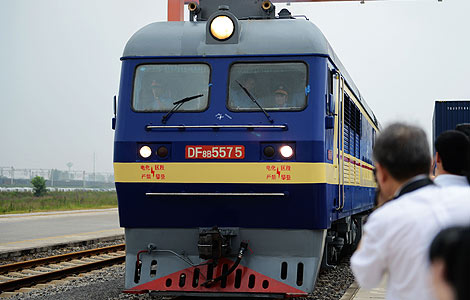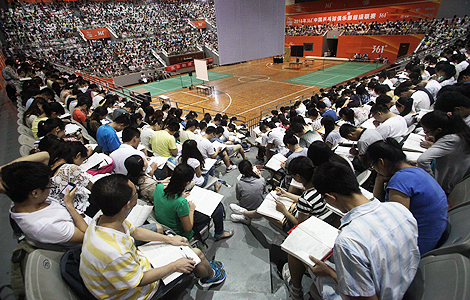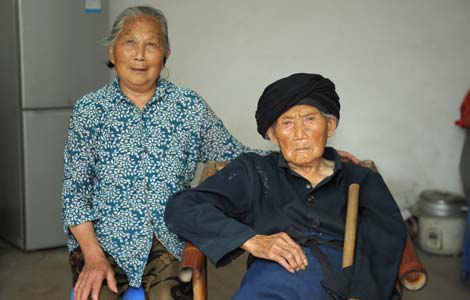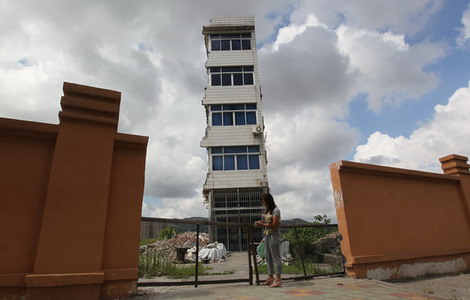

Poor coverage
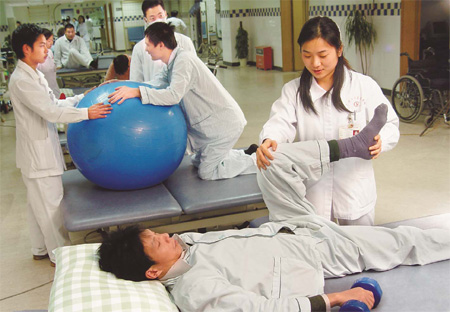 |
|
A patient undergoes physiotherapy treatment at the Work Injury Rehabilitation Center in Guangzhou, Guangdong province. The center was the first of its kind on the Chinese mainland and can treat 200 patients at a time. Photo Provided to China Daily |
Zhicheng Legal Support Center, founded in 2009, has 25 professionals in 31 branches nationwide offering free advice to migrant workers (funds come from China Legal Aid Foundation). Lawyers here mainly deal with pay disputes, which take about five to six months, and injury claims that often last more than a year.
"So far, none of my migrant worker clients have demanded anything related to rehabilitation," said attorney Wang Fang. "Their focus is always on compensation."
Rehabilitation is not compulsory under either the Industrial Injury Insurance Regulation or any labor laws, nor do local governments advertise the services. Therefore, few migrant workers even know about it.

Lu Shihai, deputy director of the Ministry of Human Resources' industrial injury department, said the lack of promotion is due to the fact existing facilities would not cope with potential demand. "We're only at an experimental stage and resources are very limited," he said. "It's a bad idea to advertise something when you can't provide for all the injured workers in need."
Judging by the reaction from migrant workers China Daily talked to, there is unlikely to be a rush for rehabilitation services even if it is advertised. Like Dai, who lost a thumb, many of them believe that going into rehab will delay or even reduce the amount of compensation they receive from employers.
Evaluations to determine the severity of an industrial injury are done after treatment and workers "are afraid they will get less if they recover too well", said Tang in Guangzhou.
Yu Youcheng, 40, said anyone who chooses money over health is short sighted, yet even he refused rehab when he fractured his fingers in 2009.
His employer - a machine factory in Beijing - had not paid for his industrial injury insurance and "they were also holding back a few months' salary", said the worker from Sichuan province. "I wanted to try rehabilitation but I didn't want to upset my boss by asking for (rehab and compensation)."
As with most labor disputes, migrant workers are in an extremely weak position, not least because they have little knowledge about the law.
When Fu Jiarong injured his back in a Chongqing mine accident, his boss spent a year paying his hospital bills. Then, suddenly, he disappeared. The 40-year-old only realized he had been cheated when he contacted an attorney and was told he had missed the deadline for declaring an industrial injury.
"The employer deliberately took advantage," said Li Kezhong, a lawyer who later represented Fu. "The law promises a lot of rights to migrant workers but few enjoy them."
Changing course
An update to the Industrial Injury Insurance Regulation that came into effect on Jan 1 this year has prompted some authorities to be more proactive about rehabilitation. In Shanghai, for example, bureaus responsible for social security, health and commodity pricing joined forces to make its services more efficient.
However, Beijing attorney Shi, who is also secretary-general of the All-China Lawyers' Association's public welfare law committee, said he feels the latest move will do "little" to get more injured workers into rehab.
For a start, the regulation was released by the State Council, the country's cabinet, and not by the National People's Congress, the top legislative body. From a legal point of view, said Shi, this makes it easier for employers to ignore.
Under the rules, companies should pay industrial injury insurance for every employee. Yet, official statistics show just 24 percent of migrant workers are covered, meaning bosses are responsible for any expenses incurred as a result of a work-related accident. It is a responsibility many attempt to shirk.
"About 97 percent of cases we've dealt with involve small and private enterprises who are incorporative and irresponsible," said Shi. "Most enterprises don't even want to pay the basic insurance and compensation, let alone rehabilitation fees."
Carpenter Li Pingjun, 39, worked a year for a Beijing decoration company in 2008 but never once met a manager. "It was always the labor contractor who dealt with us," he said. The first time he visited the company's office was after he broke his left hand in an accident. They told him to go away "as they didn't know me".
On the plus side, the updated regulation clearly states that the Industrial Injury Insurance Fund can be used for rehabilitation services. So far, Guangdong is the only province tapping this resource.
Funding is one reason why the rehab facility at the Traditional Chinese Medicine Hospital in Liaoning province is yet to receive one industrial injury patient since it opened last month. "Without clear financial grounds, we can't receive workers," said public relations officer Zhao Lubing.
Lu at the labor ministry agreed that communication between the central government and local commodity pricing bureaus on industrial injuries needs improvement.
"One day, rehabilitation will become a forceful law," he said. "China has just started its work on industrial injury rehabilitation (the first regulation was in 2004), and the current focus is still compensation. Rehabilitation is our next direction."
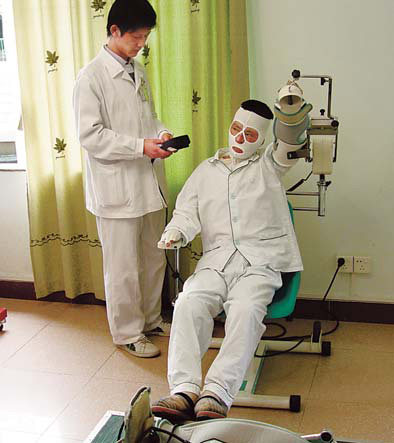 |
|
A patient suffering from facial burns receives treatment from an experienced medic at the rehab center in Guangzhou. |

